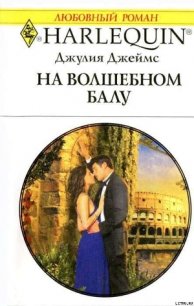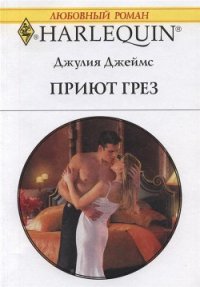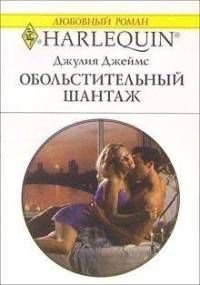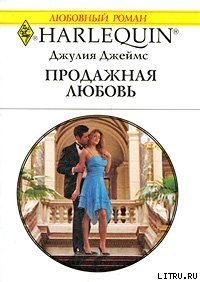Julia Ward Howe - Richards Laura E. (читать книги онлайн полностью без сокращений txt) 📗
All devices to restore the young mother's failing strength were in vain: soon after giving birth to the fourth daughter, Ann Eliza, she died.
Her life had been pure, happy, and unselfish; yet her last hours were full of anguish. Reared in the strictest tenets of Evangelical piety, she was oppressed with terror concerning the fate of her soul; the sorrows of death compassed her about, the pains of hell gat hold upon her. It is piteous to read of the sufferings of this innocent creature, as described by her mourning family; piteous, too, to realize, by the light of to-day, that she was almost literally prayed to death. She was twenty-seven years old when she died and had borne seven children.
Mr. Ward's grief at the death of this beloved wife was so extreme as to bring on a severe illness. For some time he could not bear to see the child who, he thought, had cost her mother's life; and though he gathered his other children tenderly around him, the little Annie was kept out of his sight.
By and by his father came to make him a visit and heard of this state of things. Going to the nursery, the old gentleman took the baby from its nurse, and carrying it into the room where his son sat desolate, laid it gently in his arms. From that moment the little youngest became almost his dearest care.
He could not live with his sorrow in the same dwelling that had contained his joy. The beautiful house at Bowling Green was sold, with the new furniture which had lately been ordered to please his Julia, and which the children never saw uncovered; and the family removed to Bond Street, then at the upper end of New York City.
"Mr. Ward," said his friends, "you are going out of town!"
Bond Street in the twentieth century is an unlovely thoroughfare, grimy, frowzy, given over largely to the sale of feathers and artificial flowers; Bond Street in the early part of the nineteenth century was a different affair.
The first settler in the street was Jonas Minturn, who about 1825 built No. 22. Mr. Ward came next. The city was then so remote, one could hardly see the houses to the south across the woods and fields.
The Ward children saw the street grow up around them; saw the dignified houses, brick or freestone, built and occupied by Kings, Halls, Morgans, Grinnells, most of all by Wards. Mr. Ward was then at No. 16; his father, the old Revolutionary soldier, soon came to live at No. 7, with his daughter Anne; his brother Henry was first at No. 14, then at No. 23; while his brother John was to make No. 8 a dwelling beloved by three generations.
Julia did not remember in what year her father bought the tract of land at the corner of Bond Street and Broadway. At first a large part of it was fenced in, and used as a riding-ring by the Ward boys. There was also, either here or at No. 16, something in the way of a garden, which she thus recalls in an address on horticulture, given in her later years:—
"My earliest horticultural recollections go back to an enclosure, usually called a yard, in the rear of my father's house in New York. When my little brother and I were turned out to play there, we might just as well have picked the bugs off the rosebushes as the buds, of which we made wicked havoc. Not knowing what to do with the flower border, we barbarized instead of cultivating it. Being of extremely inquiring minds, we picked the larkspurs and laburnums to pieces, but became nothing the wiser for the process. A little daily tuition might have transformed us into a miniature Adam and Eve, and might have taught us some things that these old friends of ours did not know. But tuition to us then meant six or eight daily hours passed in dry conversation with the family governess or French master. No one dreamed of turning the enamelled pages of the garden for us. We grew up consequently with the city measure of the universe—your own house, somebody else's, the trees in the park, a strip of blue sky overhead, and a great deal of talk about Nature read from the best authors. Much that is most beautiful in the works of all the poets was perfectly unintelligible to us, because we had never seen the phenomena referred to; or if we had seen them, we had not been taught to observe them. You will ask where we passed our summers? In travelling, or at the seashore, perhaps. But we took our city measure with us, and were never quite at home beyond its limits."
She adds: "I state these facts only to show how much of the world's beauty and value may be shut out from the eyes of a human being, by even a careful education! This loss cannot easily be remedied in later years. I myself had reached mature life before I experienced the deep and calm enjoyments of country life. The long, still summer days, the open, fragrant fields, the shy wild blossoms, the song of birds; these won me at last to delight in them—at first they seemed to me only a void. It was a new gospel that the meadows taught me, and my own little children were its interpreters. I know now some country craft, and could even trim fruit trees and weed garden beds. But I have always regretted in this respect the lost time of youth. When I made acquaintance with Nature, I was too old to learn the skill of gardening. Year after year in the savage island of Newport, where labor is hard to hire, I have passed summers ungladdened by so much as a hollyhock, and the garden I at last managed to secure owes nothing to my skill or knowledge."
The truth is, people were afraid of the open air in those days. Julia and her sisters sometimes went for a drive in pleasant weather, dressed in blue pelisses and yellow satin bonnets to match the chariot; they rarely went out on foot; when they did, it was in cambric dresses and kid slippers; the result was apt to be a cold or a sore throat, proving conclusively to the minds of their elders how much better off they were within doors.
Julia's nursery recollections were chiefly of No. 16 Bond Street. Here the little Wards lived a happy but somewhat sober life, under the watchful care of their father, and their faithful Aunt Eliza, known in the family as "Auntie Francis."
The young mother, in dying, had commended her children specially to the care of this, her eldest sister, whose ability had been tried and proved from childhood. In 1810 her father, Benjamin Clarke Cutler, died suddenly under singular and painful circumstances. Her mother, crushed by this event, took to her bed, leaving the care of the family to Eliza, then fifteen years of age. Eliza took up the house-mother's burden without question; nursed her mother, husbanded the narrow resources of the household, brought up the four younger children with a strong hand. "There were giants in those days."
Nothing could daunt Eliza Cutler's spirits, which were a perpetual cordial to those around her. She was often "borrowed" by one member and another of the family; she threatened to hang a sign over her door with the inscription, "Cheering done here by the job by E. Cutler." Her tongue could be sharp as well as merry; witness many anecdotes.
The housekeeper of a certain millionnaire, calling upon her to ask the character of a servant, took occasion to enlarge upon the splendors of her employer's establishment. "Mr. So-and-So keeps this; Mr. So-and-So keeps that:—"
"Yes! yes!" said Mrs. Francis; "it is well known that Mr. So-and-So keeps everything, except the Ten Commandments!"
"Oh! Mrs. Francis, how could you?" cried the poor millionnaire when next they met.
In 1829 Eliza Cutler married Dr. John Wakefield Francis, the historian of Old New York, the beloved physician of a whole generation. He was already, as has been seen, a member of the Ward household, friend and resident physician. His tremendous vitality, his quick sympathies, his amazing flow of vivid and picturesque language, made him the delight of the children. He called them by singular pet names, "Cream Cheese from the Dairy of Heaven," "Pocket Edition of Lives of the Saints," etc., etc. He sang to them odd snatches of song which were to delight and exasperate later generations:—




